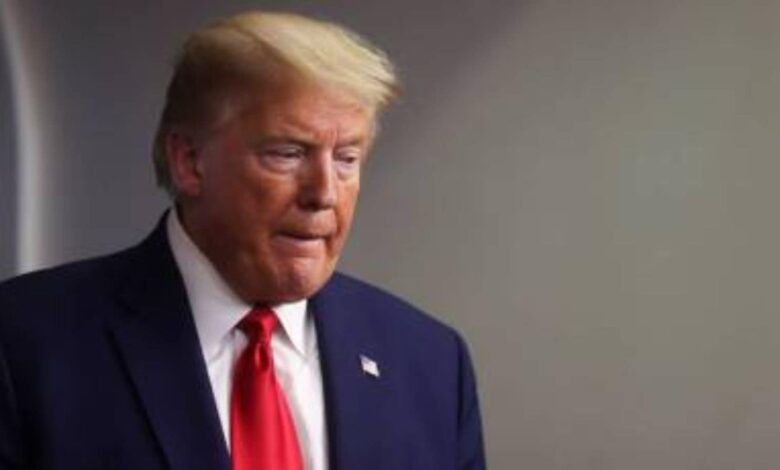Emboldened Trump, AI companies lob for fewer rules | Technology News

For just over two years, technology leaders at the forefront of developing artificial intelligence had made an unusual request of lawmakers. They wanted Washington to regulate them.The tech executives warned lawmakers that generative AI, which can produce text and images that mimic human creations, had the potential to disrupt national security and elections, and could eventually eliminate millions of jobs.
AI could go “quite wrong,” OpenAI CEO Sam Altman testified in Congress in May 2023. “We want to work with the government to prevent that from happening.”
Story continues below this ad
But since President Donald Trump’s election, tech leaders and their companies have changed their tune and, in some cases, reversed course, with bold requests of government to stay out of their way, in what has become the most forceful push to advance their products.
In recent weeks, Meta, Google, OpenAI and others have asked the Trump adminration to block state AI laws and to declare that it is legal for them to use copyrighted material to train their AI models. They are also lobing to use federal data to develop the technology, as well as for easier access to energy sources for their computing demands. And they have asked for tax breaks, grants and other incentives.
The shift has been enabled Trump, who has declared that AI is the nation’s most valuable weapon to outpace China in advanced technologies.
On his first day in office, Trump signed an executive order to roll back safety testing rules for AI used the government. Two days later, he signed another order, soliciting industry suggestions to create policy to “sustain and enhance America’s global AI dominance.”Story continues below this ad
Tech companies “are really emboldened the Trump adminration, and even issues such as safety and responsible AI have disappeared completely from their concerns,” said Laura Caroli, a senior fellow at the Wadhwani AI Center at the Center for Strategic and International Studies, a nonprofit think tank. “The only thing that counts is establishing U.S. leadership in AI.”
Many AI policy experts worry that such unbridled growth could be accompanied , among other potential problems, the rapid spread of political and health disinformation; discrimination automated financial, job and housing application screeners; and cyberattacks.
The reversal the tech leaders is stark. In September 2023, more than a dozen of them endorsed AI regulation at a summit on Capitol Hill organized Sen. Chuck Schumer, D-N.Y., the majority leader at the time. At the meeting, Elon Musk warned of “civilizational risks” posed AI.
In the aftermath, the Biden adminration started working with the biggest AI companies to voluntarily test their systems for safety and security weaknesses and mandated safety standards for the government. States such as California introduced legislation to regulate the technology with safety standards. And publishers, authors and actors sued tech companies over their use of copyrighted material to train their AI models.Story continues below this ad
(The New York Times has sued OpenAI and its partner, Microsoft, accusing them of copyright infringement regarding news content related to AI systems. OpenAI and Microsoft have denied those claims.)
But after Trump won the election in November, tech companies and their leaders immediately ramped up their lobing. Google, Meta and Microsoft each donated $1 million to Trump’s inauguration, as did Altman and Apple’s Tim Cook. Meta’s Mark Zuckerberg threw an inauguration party and has met with Trump numerous times. Musk, who has his own AI company, xAI, has spent nearly every day at the president’s side.
In turn, Trump has hailed AI announcements, including a plan OpenAI, Oracle and SoftBank to invest $100 billion in AI data centers, which are huge buildings full of servers that provide computing power.
“We have to be leaning into the AI future with optimism and hope,” Vice President JD Vance told government officials and tech leaders last week.Story continues below this ad
At an AI summit in Paris last month, Vance also called for “pro-growth” AI policies and warned world leaders against “excessive regulation” that could “kill a transformative industry just as it’s taking off.”
Now, tech companies and others affected AI are offering responses to the president’s second AI executive order, “Removing Barriers to American Leadership in Artificial Intelligence,” which mandated development of a pro-growth AI policy within 180 days. Hundreds of them have filed comments with the National Science Foundation and the Office of Science and Technology Policy to influence that policy.
OpenAI filed 15 pages of comments, asking for the federal government to preempt states from creating AI laws. The San Francisco-based company also invoked DeepSeek, a Chinese chatbot created for a small fraction of the cost of U.S.-developed chatbots, saying it was an important “gauge of the state of this competition” with China.
If the Chinese developers “have unfettered access to data and American companies are left without fair-use access, the race for AI is effectively over,” OpenAI said, requesting that the U.S. government turn over data to feed into its systems.Story continues below this ad
Many tech companies also argued that their use of copyrighted works for training AI models was legal and that the adminration should take their side. OpenAI, Google and Meta said they believed they had legal access to copyrighted works such as books, films and art for training.
Meta, which has its own AI model, called Llama, pushed the White House to issue an executive order or other action to “clarify that the use of publicly available data to train models is unequivocally fair use.”
Google, Meta, OpenAI and Microsoft said their use of copyrighted data was legal because the information was transformed in the process of training their models and was not being used to replicate the intellectual property of rights holders. Actors, authors, musicians and publishers have argued that the tech companies should compensate them for obtaining and using their works.
Some tech companies have also lobbied the Trump adminration to endorse “open source” AI, which essentially makes computer code freely available to be copied, modified and reused.Story continues below this ad
Meta, which owns Facebook, Instagram and WhatsApp, has pushed hardest for a policy recommendation on open sourcing, which other AI companies, including Anthropic, have described as increasing the vulnerability to security risks. Meta has said open source technology speeds up AI development and can help startups catch up with more established companies.
Andreessen Horowitz, a Silicon Valley venture capital firm with stakes in dozens of AI startups, also called for support of open source models, which many of its companies rely on to create AI products.
And Andreessen Horowitz gave the starkest arguments against new regulations for AI. Exing laws on safety, consumer protection and civil rights are sufficient, the firm said.
“Do prohibit the harms and punish the bad actors, but do not require developers to jump through onerous regulatory hoops based on speculative fear,” Andreessen Horowitz said in its comments.Story continues below this ad
Others continued to warn that AI needed to be regulated. Civil rights groups called for audits of systems to ensure they do not discriminate against vulnerable populations in housing and employment decisions.
Arts and publishers said AI companies needed to disclose their use of copyright material and asked the White House to reject the tech industry’s arguments that their unauthorized use of intellectual property to train their models was within the bounds of copyright law. The Center for AI Policy, a think tank and lobing group, called for third-party audits of systems for national security vulnerabilities.
“In any other industry, if a product harms or negatively hurts consumers, that project is defective and the same standards should be applied for AI,” said K.J. Bagchi, vice president of the Center for Civil Rights and Technology, which submitted one of the requests.





